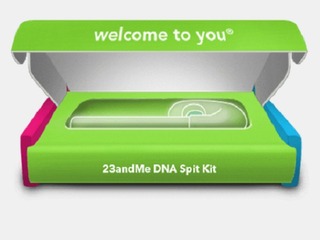Hippocratic AI adds $17M to its Series A funding, partners with NVIDIA
Hippocratic AI, the company building the first safety-focused Large Language Model (LLM) for healthc
Read more...
(Come mingle with hundreds of top venture capitalists representing $10B-plus in capital under management, including Khosla Ventures, Greylock and Javelin Venture Partners, and learn from founders/CEOs including Marco Zappacosta, Co-founder & CEO of Thumbtack and Adam Goldenberg, CEO of JustFab, Slava Rubin, Founder & CEO of Indiegogo, at Vator Splash Oakland on April 22nd and 23rd. Get your tickets here!)
The healthtech space has seen some really exciting advancements in the past few years, things that can really help people diagnose and treat their ailments quicker and better. The venture capital industry has responded with enthusiasm, as well it should.
Let's not forget, though, that as long as there are people who have health problems there will be out there looking to exploit them. There will always be snake-oil salesmen, ready to hawk the latest miracle cure.
On Monday, the Federal Trade Commission announced that it was levying a fine against one such company. MelApp, an app that claimed to be able to give its users a risk assessment for melanoma on your skin, has been ordered to pay a fine of $17,963.
it was also ordered it to stop making health claims that the agency said could not be substantiated.
"The final order settling the action bars the company from claiming that any device detects or diagnoses melanoma or its risk factors, or increases users’ chances of early detection, unless the representation is not misleading and is supported by competent and reliable scientific evidence," the FTC wrote.
"It also prohibits Health Discovery Corporation from making any other deceptive claims about a device’s health benefits or efficacy, or about the scientific support for any product or service,"
Launched in 2011 by Health Discovery Corporation, MelApp said that it could properly diagnose skin cancer through its smartphone app. Its users would take a picture of a mole with their camera, label it, mark the diameter, and then say how fast it had been growing. The image was then uploaded to a server and run through an image analysis risk assessment process.
The app would then comes back with a diagnosis, showing it to be either high-risk or low-risk, based on a number of parameters, including mole asymmetry and rate of evolution.
The FTC, however, was not buying it, charging that "Health Discovery Corporation deceptively claimed the app accurately analyzed melanoma risk and could assess such risk in early stages, and that its accuracy was scientifically proven."
This is certainly not the first time that a health-related consumer product has run into trouble from the government for potentially giving patients false information.
Perhaps the most famous example of this came in 2013, when the FDA ordered personal genomics company 23andMe to stop stop selling its DNA kit, which included a full report on their genetic history, such as their predisposition for certain diseases, which medications they will have a negative reaction to, their ancestry and lineage, and their carrier status for certain diseases.
The FDA cited the way 23andMe had been marketing the product, including saying that it provided health reports on over 200 diseases and conditions, and that it can be used to help people prevent such diseases as diabetes, coronary heart disease, and breast cancer through the test results. The company eventually complied, and started selling the kits without health analysis attached, though it still does include them in other countries it sells to.
It's a brave new world out there for technology designed to give people better access to healthcare, but it is also going to be a tricky balancing act, making sure that they don't step over lines.
This news was first discovered by VentureBeat.
VatorNews has reached out to Health Discovery Corporation for comment on the FTC's order. We will update this story if we learn more.
(Image source: huffingtonpost.com)
Hippocratic AI, the company building the first safety-focused Large Language Model (LLM) for healthc
Read more...The company hired Kal Raman, formerly of Amazon, Samsung, and Groupon, to run the division
Read more...Kipu offers CRM, an EMR, and RCM, and now will be able to automate the collection of data
Read more...Startup/Business
Joined Vator on
23andMe is a web-based service that helps you read and understand your DNA. After providing a saliva sample using an at-home kit, you can use our interactive tools to shed new light on your distant ancestors, your close family and most of all, yourself.


